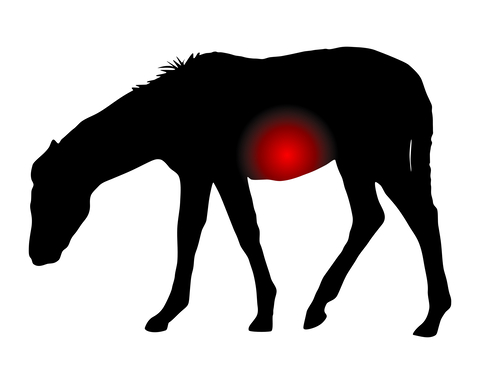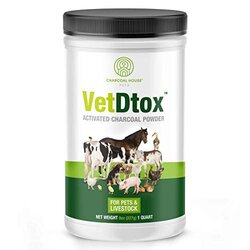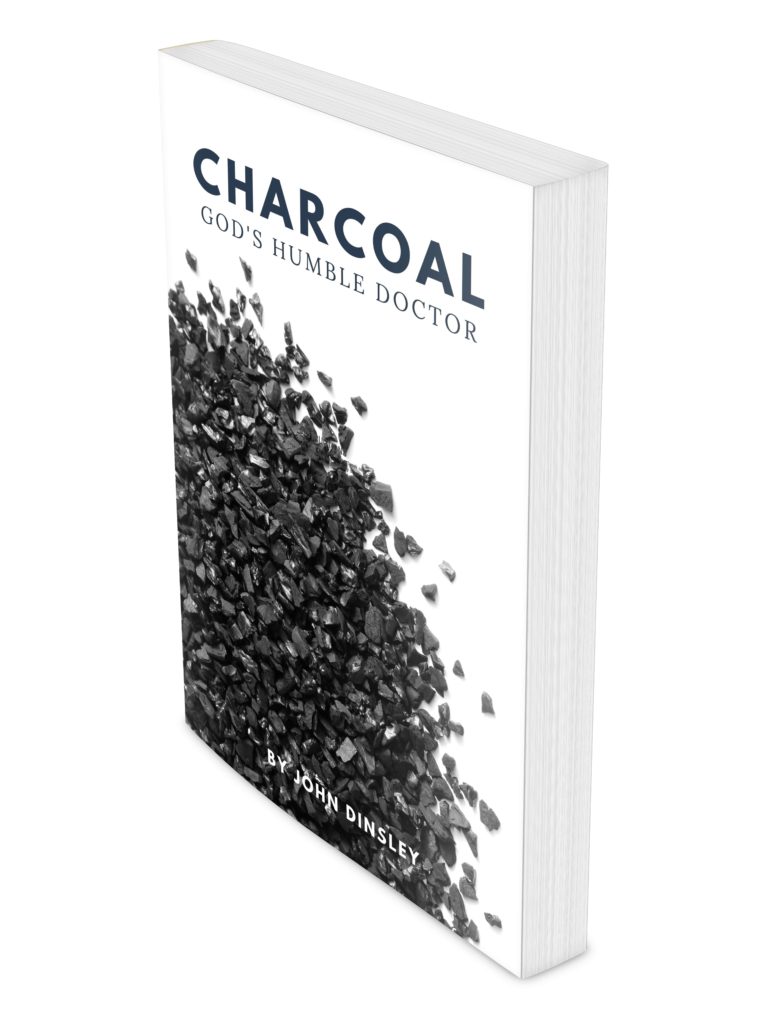#1 Natural Horse Colic Treatment – Activated Charcoal

Table of Contents
Horse colic. In the horse community, when referring to health problems, these are two of the most dreaded words. When a horse experiences abdominal pain, it is commonly referred to as horse or equine colic. Without quick discernment as to the cause of the pain and administration of an effective horse colic treatment, it can potentially become life-threatening. 10-11% of domesticated horses die each year from colic alone.
Causes for Horse Colic
If a horse displays signs of distress such as loss of appetite, sweating, bloating, and general uneasiness, they are most likely experiencing colic. Just as human stomachaches can have different triggers, there are many reasons for abdominal pain in horses. It is important for owners to quickly discern the cause for the colic to ensure quick, accurate treatment. Here are the most common causes:
- Dietary changes in amount or type of food
- Impaction caused by dehydration
- Consumption of poisonous plants
- Parasites
- Rancid feed
- Ingestion of sand
- Dental issues
- Stress
Safe and Effective Horse Colic Treatment
 Activated charcoal acts as a binding agent to attach to and remove toxins from the GI tract. A healthy gut makes for a much happier horse. Since the gut area is the center of the colic storm, it makes perfect sense that using charcoal would be an excellent remedy. While it may sound strange to administer activated charcoal to a domestic horse, wild horses already know they don’t need a recommendation from an equine nutritionist for this natural remedy. Many wild animals instinctively forage on burnt wood from forest fires.
Activated charcoal acts as a binding agent to attach to and remove toxins from the GI tract. A healthy gut makes for a much happier horse. Since the gut area is the center of the colic storm, it makes perfect sense that using charcoal would be an excellent remedy. While it may sound strange to administer activated charcoal to a domestic horse, wild horses already know they don’t need a recommendation from an equine nutritionist for this natural remedy. Many wild animals instinctively forage on burnt wood from forest fires.
In the article Is Activated Charcoal Safe for Colicky, Toxic Horses? Kathleen Crandell, an equine nutritionist for Kentucky Equine Research, recommends this natural remedy for horses experiencing “endotoxemia, colic, flatulence, and ingested toxins”. Activated charcoal is stated to be a “relatively simple, but apparently effective, treatment”. As for the impact on beneficial digestive tract microbes, researchers discovered that charcoal has no adverse effects on “gas production, volatile fatty acid levels, ammonia concentrations, or pH values”. Activated Charcoal is a safe, inexpensive and effective horse colic treatment.
Administering Charcoal for Horse Colic
VetDtox™ is a veterinarian recommended activated charcoal powder that is used extensively for livestock animals including horses. It can be given in two ways:
- Mix one tablespoon per thirty pounds of body weight in enough water to make a thin slurry. Encourage your horse to drink all of the liquid. Depending on the age/size of the horse you can use a watering bucket, bottle, or syringe.
- Mix one tablespoon per thirty pounds of body weight directly into the feed bucket. The horse will consume the charcoal along with the feed.
Are you prepared if your prince or princess gets colic?
Don’t wait for symptoms to escalate before administering VetDtox™. If you are a horse owner, be sure to have this product on hand for emergencies. Carefully monitor symptoms and if necessary give a repeated dose every 24 hours. Should symptoms not improve after 48 hours you may need to contact a veterinarian.
Testimonies of Charcoal for Horse Colic
Many people have used charcoal to promote digestion in their horses, but don’t take our word for it. Read this testimony about a mare that recovered from grass founder when her owner mixed charcoal powder into her feed.

Kimberly Dinsley
Kimberly Dinsley and her husband John are the founders and owners of Charcoal House LLC. Kimberly oversees much of the day-to-day operations of the business and several websites and Blog. She was born and raised in the noisy Twin Cities of Minnesota, but now enjoys the quieter country life of NW Nebraska. Even with all her office responsibilities she still manages grinding wheat to make bread, gardening, tending her growing flock of chickens, and ever learning to make delicious vegan fare. She has become quite adept in giving natural treatments and assisting her husband with health seminars and workshops.

